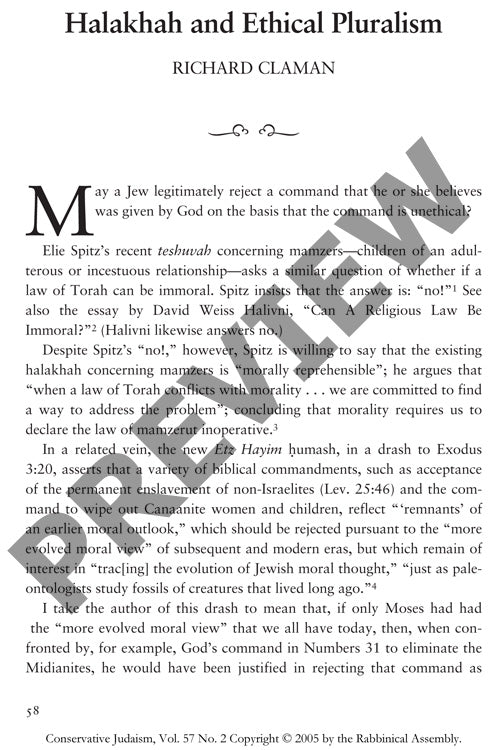Halakhah and Ethical Pluralism
Couldn't load pickup availability
The relationship between Jewish law (halakhah) and ethical reasoning presents a fundamental challenge: can Jews legitimately reject divine commands they consider unethical? Rather than assuming a single universal moral system, ethical pluralism—the existence of multiple reasonable comprehensive moral doctrines—offers a more coherent framework for understanding this tension. Through comparative analysis of contemporary Jewish legal opinions, particularly recent responsa on mamzerut, alongside insights from John Rawls's work on reasonable pluralism and Thomas Scanlon's moral philosophy, a new understanding emerges. God has commanded Jews to affirm a particular family of comprehensive moral doctrines that provides an internal framework for critiquing and potentially modifying specific halakhic norms when they conflict with core moral values. Addressing Kant's challenge regarding moral autonomy, parallels with developments in political philosophy justify state coercion on nonvoluntaristic grounds, demonstrating that the Kantian demand for autonomy is misplaced in contexts of reasonable pluralism. Judaism ultimately represents a reasonable comprehensive doctrine that can legitimately command adherence without requiring autonomous consent, and this commanded ethical framework can provide grounds for halakhic self-criticism and development while maintaining its divine authority.

More Information
-
Physical Description
-
Publication Information
Published 2005
ISBN
-
Publication Credits
Richard Claman

